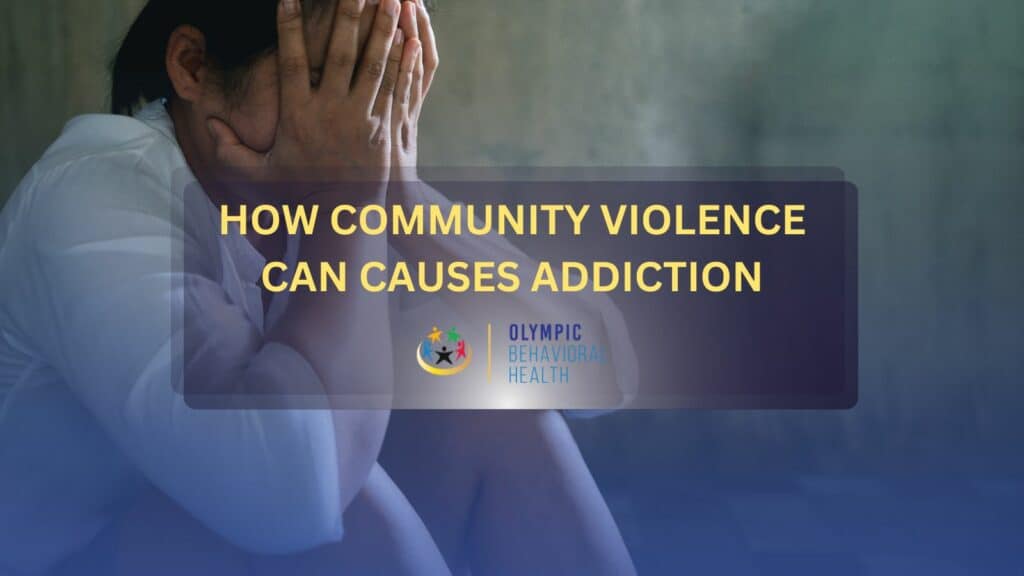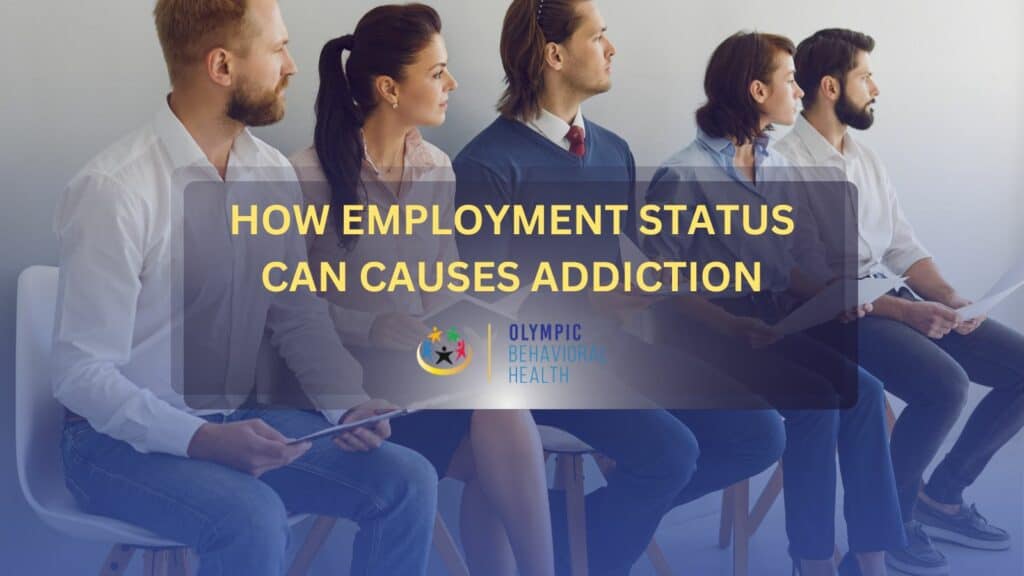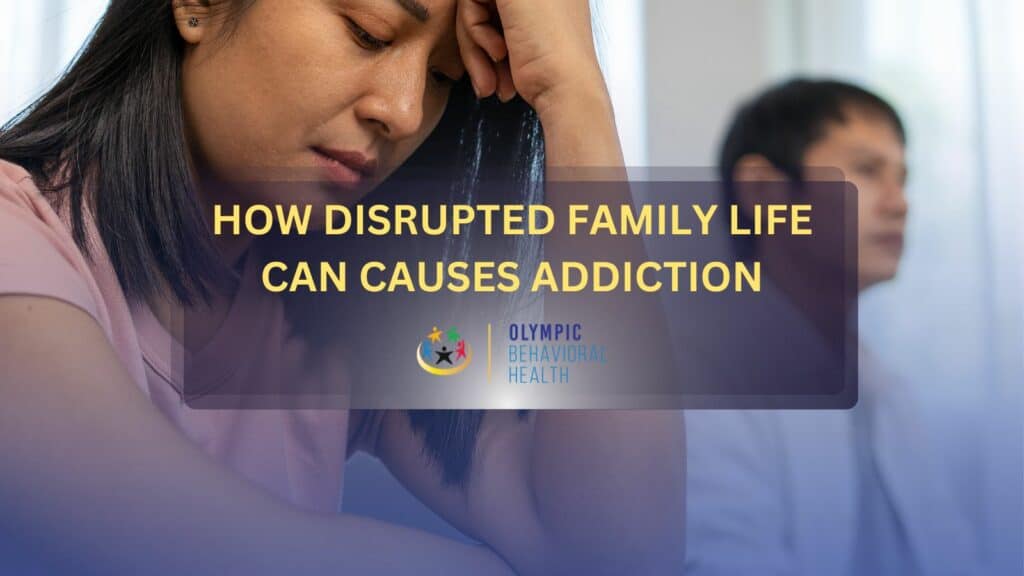The concept of “early substance use” lacks a precise scientific definition. However, a 2017 study categorized users as “early” (starting before age 17) and “late” (beginning after 17) to explore its impact.
Adolescence is a critical period shaped by evolution for survival and reproduction. It involves physical development, such as secondary sexual characteristics, and a shift towards adult thinking and social behavior. During this time (ages 10-19, as defined by WHO), inherent risk-taking tendencies emerge as individuals transition from childhood to adulthood.
A concerning statistic from the 2010-2011 National Survey on Drug Use and Health in the U.S. reveals that roughly 16.6% of adolescents aged 12-17 had their first encounter with alcohol or illicit drugs within that period. This highlights the widespread issue of early substance use among teenagers.
Research has shown that early substance use, particularly during the formative adolescent years, is a known risk factor for developing addiction later in life. This underscores the importance of avoiding experimentation with substances during adolescence.
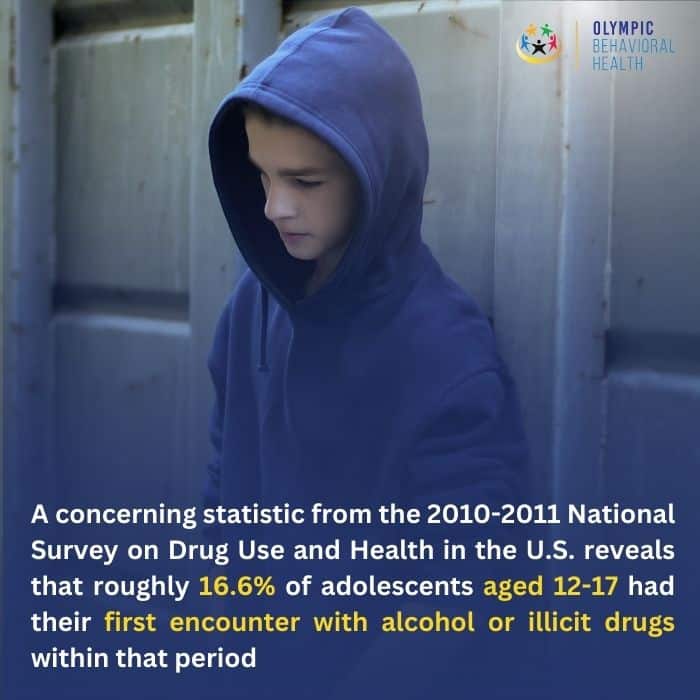
Can early exposure to drugs and alcohol lead to a substance addiction?
There’s evidence suggesting early exposure to drugs and alcohol can increase the risk of addiction later in life. Here’s a look at some studies and their conclusions.
“The Impact of Early Adolescent Substance Use on Adult Health Outcomes” by Fergusson et al. (2008)
This article, published in the Journal of Child Psychology and Psychiatry, investigates the long-term consequences of early substance use on adult health outcomes. The authors, Fergusson et al., conducted a prospective study following a cohort of New Zealand children from birth into adulthood.
Key Findings
- The study found a clear association between early adolescent substance use (before age 15) and a variety of adverse health outcomes in adulthood.
- These outcomes included:
- Substance dependence: Individuals who began using substances early were more likely to develop dependence on drugs or alcohol later in life.
- Physical health problems: Early substance use was linked to an increased risk of health issues like respiratory problems and injuries.
- Mental health problems: The study found a correlation between early substance use and mental health problems like depression and anxiety in adulthood.
- Social and economic problems: Early substance use was associated with poorer educational attainment, lower income, and criminal convictions in adulthood.
Strengths of the Study
- This research is significant due to its prospective design, which follows participants from childhood into adulthood. This approach helps establish a more vital causal link between early substance use and later health problems.
- The study also considers a broad range of potential confounding factors, such as socioeconomic background and mental health problems in childhood.
Limitations of the Study
- The study relies on self-reported data, which can be prone to bias and inaccuracies.
- The research is based on a specific population in New Zealand, and the generalizability of the findings to other cultures or countries might require further investigation.
Overall Significance
This study by Fergusson et al. provides compelling evidence that early substance use has a significant negative impact on various aspects of adult health and well-being. The findings highlight the importance of preventive measures and early intervention programs to discourage substance use among adolescents.
“Adolescent substance use onset and trajectories: Moderation by childhood physical abuse and neglect” (2013) by Windle & Jacono
This article, published in the journal “Drug and Alcohol Dependence,” investigates the connection between childhood physical abuse and neglect, adolescent substance use onset, and the long-term trajectory of substance use.
Key Findings
- The study found that adolescents who experienced childhood physical abuse or neglect were more likely to initiate substance use earlier compared to those who did not have such experiences.
- Interestingly, the study also identified a moderating effect. Adolescents with a history of abuse or neglect who also started using substances early showed a steeper increase in substance use over time compared to those with abuse/neglect who started using substances later.
Strengths
- This study addresses a crucial public health concern: the link between childhood maltreatment and substance use problems.
- The research design incorporates a longitudinal approach, following participants over several years to strengthen the understanding of cause-and-effect relationships.
- The study acknowledges the potential for a moderating effect, suggesting a more nuanced understanding of the complex factors influencing substance use trajectories.
Limitations
- The study relies on self-reported data, which can be susceptible to biases in recall and reporting.
- The study explores a specific population (adolescents in the US), limiting the generalizability of findings to other populations.
- The study doesn’t delve into the underlying mechanisms explaining how childhood maltreatment influences substance use trajectories.
Overall
This research by Windle & Jacono provides valuable insights into the connection between childhood adversity, adolescent substance use initiation, and long-term patterns of substance use. The identification of a moderating effect highlights the need for further exploration of the complex interplay of factors influencing addiction risk. Future research could address the limitations mentioned by incorporating objective measures, exploring broader populations, and investigating the specific mechanisms at play.
“Adolescent substance use onset and psychiatric disorders: A meta-analysis of longitudinal studies” by Lydia Kostyk et al.
The article, authored by Lydia Kostyk et al., explores the connection between the onset of adolescent substance use and the development of psychiatric disorders later in life.
The researchers conducted a meta-analysis, a statistical technique combining data from multiple studies. They analyzed data from 42 longitudinal studies encompassing over 100,000 participants.
Key Findings
- The study found a significant association between early adolescent substance use (defined as onset before age 15) and the increased risk of developing various psychiatric disorders in adulthood.
- This association is held for a range of disorders, including mood disorders (like depression), anxiety disorders, and psychotic disorders.
- The earlier the onset of substance use, the greater the risk of developing psychiatric disorders.
Strengths of the Study
- This meta-analysis provides strong evidence for a link between early substance use and later psychiatric problems.
- The large sample size and longitudinal design (tracking participants over time) enhance the credibility of the findings.
Limitations and Future Directions
- The study cannot establish causation; it only establishes correlation. It doesn’t necessarily prove that substance use directly causes psychiatric disorders. Other factors might influence both.
- The study doesn’t delve into the reasons behind this association. Future research could explore potential mechanisms, such as the impact of substance use on brain development or self-medication attempts for underlying mental health issues.
Overall
This article by Kostyk et al. provides valuable insights into the connection between adolescent substance use and the risk of future psychiatric disorders. The findings highlight the importance of early intervention and prevention programs to address substance use in adolescents and potentially reduce the risk of mental health problems later in life.
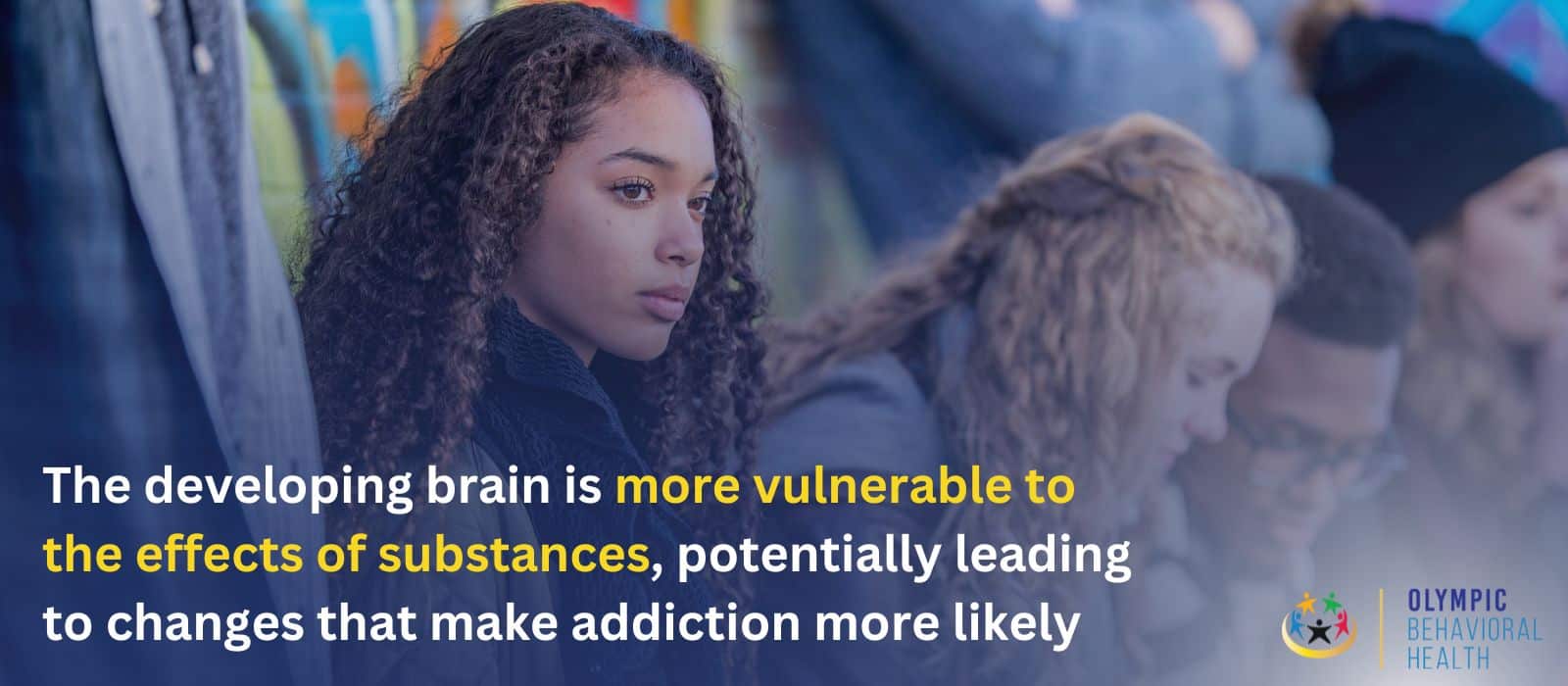
Conclusion
While early exposure to drugs and alcohol doesn’t guarantee addiction, it’s a significant risk factor. The developing brain is more vulnerable to the effects of substances, potentially leading to changes that make addiction more likely. However, it’s essential to consider that addiction is a complex issue, and other factors also contribute to its development.
It’s important to note that not everyone who starts using substances early will develop addiction. The type of substance, frequency of use, and individual factors all play a role in addiction risk. Early intervention and prevention programs can be crucial in reducing the risk of addiction for young people.
What other potential causes of addiction are there?
Addiction is a complex issue fueled by a combination of factors beyond just early substance use or trauma. Here are some additional potential causes:
- Biological factors: Genetics play a role, with some individuals having a higher predisposition to addiction based on their family history. Brain chemistry also influences vulnerability. People with lower dopamine levels, a neurotransmitter associated with pleasure, may be more likely to seek substances that artificially elevate it. Additionally, co-occurring mental health conditions like depression, anxiety, and ADHD can increase addiction risk as individuals may use substances to self-medicate.
- Social and environmental factors: Social pressure from peers who use substances can significantly influence. Socioeconomic factors like poverty, unemployment, and lack of opportunities can contribute by creating stress and hopelessness, making people more susceptible to the allure of substances. Childhood abuse or neglect can have a lasting impact on brain development and increase addiction risk later in life.
Is Disrupted Family Life a Cause of Addiction?
Disrupted family life can be a risk factor for addiction. This can include situations like parental conflict, divorce, abuse, or neglect. These experiences can create a stressful and unstable environment for children and adolescents. They may turn to substances as a coping mechanism to deal with difficult emotions or feelings of isolation.
Additionally, children raised in these environments may be exposed to substance use by parents or other family members, increasing their likelihood of using themselves.
Can community violence cause addiction?
Community violence can contribute to the development of addiction. Exposure to violence in the community can lead to trauma, which can increase the risk of addiction as individuals may turn to substance use as a coping mechanism.
Additionally, living in a community where violence is prevalent can create a high-stress environment, which can also increase the likelihood of addiction. For more information on the connection between trauma and substance use, check out this article on “Understanding the Link between Trauma and Substance Abuse.”
Help needed with a Addiction? Come to our Treatment Centers in West Palm Beach Florida, we can help you!
If you or a loved one is struggling with addiction, seeking professional help is crucial for long-term recovery. Our drug rehab in West Palm Beach, Florida offer personalized care and evidence-based treatment options to help individuals overcome addiction. Our experienced team provides a supportive and compassionate environment to address underlying issues and develop healthy coping skills.

Share This Post

